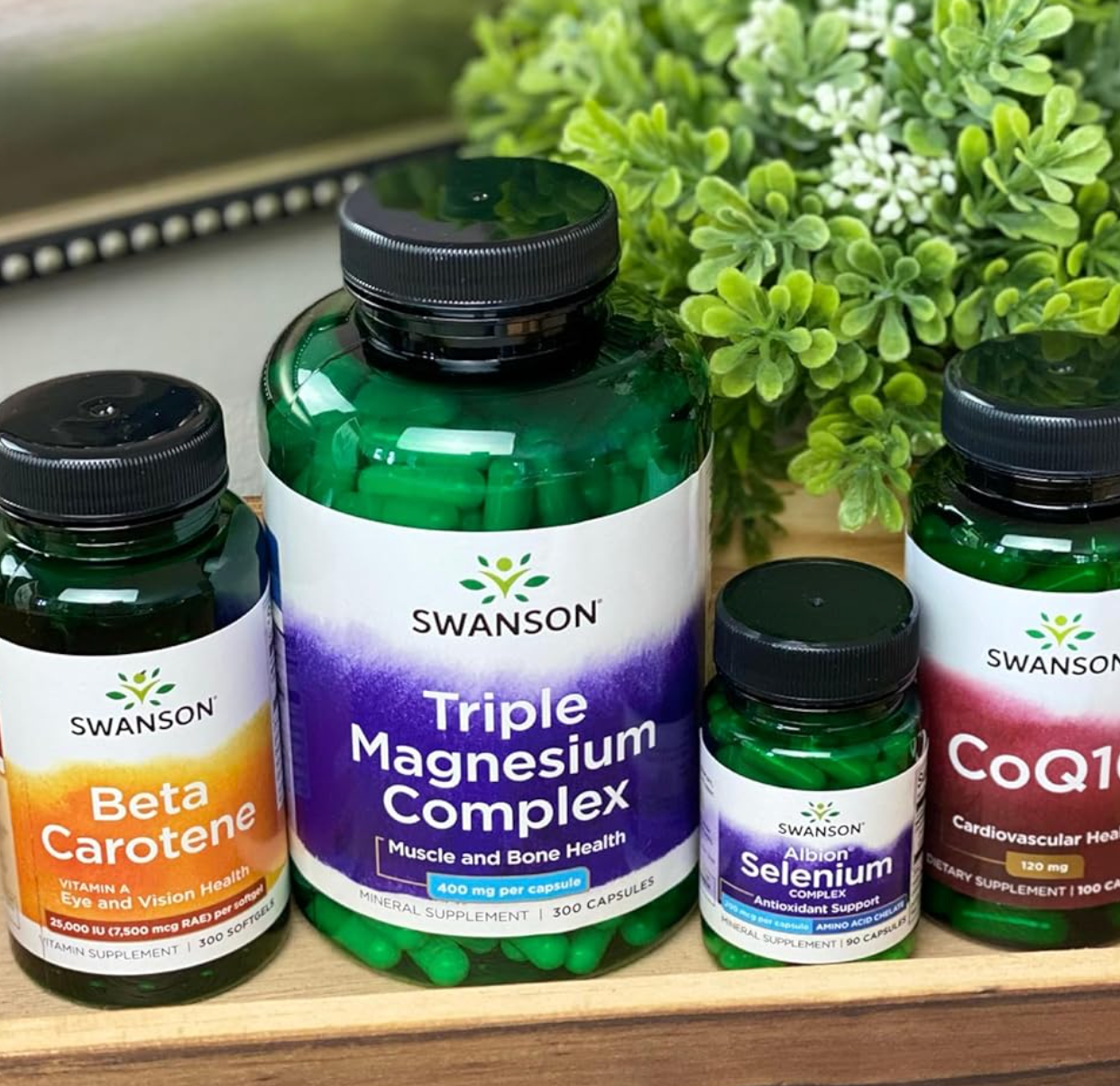
 Instagram
Instagram
9 Reasons to Switch to Decaf Coffee


Related products
Decaffeinated coffee, often referred to as decaf, is becoming an increasingly popular choice among consumers. This variant undergoes a decaffeination process to remove most of the caffeine content while retaining the coffee's distinctive taste and aroma. The primary methods of decaffeination include water, organic solvents, or carbon dioxide, all aimed at minimising the caffeine content without impacting the natural coffee flavours.
1. Improved Sleep Patterns
Caffeine's Impact on Sleep
Caffeine is a known stimulant that can significantly disrupt sleep patterns by reducing the quality and duration of sleep. It functions by blocking the action of a natural brain chemical that is associated with sleep. Dr. Richard Allen, a leading sleep researcher, states, "Caffeine can delay the timing of your clock, reduce your total sleep time, and reduce the quality of your sleep."
Comparative Analysis: Decaf vs. Regular Coffee
Switching to decaf coffee can mitigate these adverse effects. A study published in the Journal of Clinical Sleep Medicine found that participants who consumed decaf coffee experienced notably better sleep quality compared to those who consumed regular coffee. This evidence supports the notion that decaf coffee is a preferable evening beverage for individuals aiming to improve their sleep patterns.
2. Reduced Anxiety and Better Mental Health
Caffeine and Mental Health
Caffeine can exacerbate symptoms of anxiety and other mental health conditions by increasing heart rate and blood pressure, leading to heightened stress levels. According to Dr. Sarah Jarvis, "Regular consumption of high-caffeine coffee can lead to higher levels of anxiety and stress."
Benefits of Decaf
Decaf coffee offers a beneficial alternative, as it contains minimal caffeine. Research indicates that reducing caffeine intake can lead to noticeable improvements in anxiety levels and overall mental well-being. A study in the "Journal of Psychoactive Drugs" showed that individuals who switched to decaf reported lower anxiety levels than those who continued drinking regular coffee. To learn more about Caffeine Intolerance: Symptoms, Causes, and Diagnosis continue reading.
3. Lower Blood Pressure
Caffeine’s Role in Hypertension
Caffeine can lead to short-term spikes in blood pressure, a concerning factor for individuals with hypertension. Dr. Elina Hyppönen from the University of South Australia notes, "Even small increases in blood pressure can have significant health implications."
Decaf and Cardiovascular Health
Research findings suggest that decaf coffee may have a less significant effect on blood pressure than regular coffee. A study in "The American Journal of Clinical Nutrition" found that participants who switched to decaf experienced a reduction in blood pressure levels. This indicates that decaf coffee might contribute to better cardiovascular health, particularly for those prone to hypertension.
4. Better Digestive Health
Caffeine and the Digestive System
Caffeine can irritate the digestive tract, leading to conditions such as acid reflux and irritable bowel syndrome (IBS). It stimulates acid production in the stomach, worsening symptoms of digestive discomfort.
Switching to Decaf
Decaf coffee presents a lower risk for individuals with digestive issues. A report in the "World Journal of Gastroenterology" suggests that decaf coffee has a more negligible effect on acid production, making it a safer choice for those with acid reflux or IBS.
5. Decreased Risk of Heart Problems
Caffeine and Heart Health
Excessive caffeine consumption is associated with various heart problems, including arrhythmias and increased heart rate. Dr. Peter Kistler, head of arrhythmia research, states, "High caffeine intake can result in heart arrhythmias and increase the risk of more severe heart conditions."
Decaf and Improved Heart Health
Conversely, decaf coffee has been linked to improved heart health. Research indicates that decaf coffee consumption is associated with a lower risk of heart disease. A study in "The Journal of Nutrition" concluded that decaf coffee drinkers had a reduced risk of developing heart disease compared to those who drank regular coffee, suggesting that decaf coffee may offer cardiovascular benefits without the adverse effects associated with caffeine.
6. Reduced Risk of Certain Cancers
Research on Coffee, Caffeine, and Cancer Risk
Studies have explored the relationship between coffee consumption, caffeine, and the risk of developing certain types of cancer. While the results are mixed, there is evidence suggesting that high caffeine intake may be associated with an increased risk of certain cancers.
Evidence for Decaf as a Safer Option
Decaf coffee, which has most of its caffeine removed, appears to offer a reduced risk in this context. According to research published in the "Journal of the National Cancer Institute," decaf coffee was associated with a lower rate of certain types of cancer compared to regular coffee. This suggests that decaf could be a safer alternative for individuals concerned about cancer risk.
7. Lower Risk of Osteoporosis
Caffeine's Effect on Bone Health
Caffeine can interfere with calcium absorption and contribute to bone density loss, increasing the risk of osteoporosis, particularly in individuals with a low calcium intake. Dr. Laura Anderson from the Bone Health Foundation states, "Excessive caffeine consumption can lead to significant calcium loss, which, over time, can contribute to the development of osteoporosis."
Benefits of Decaf for Bone Health
Switching to decaf coffee can help mitigate these risks. Studies indicate that decaf coffee has a much less significant effect on calcium absorption and does not contribute to bone density loss as much as regular coffee. This makes decaf a preferable option for those looking to maintain or improve their bone health.
8. Better Control of Diabetes
Caffeine's Impact on Blood Sugar and Insulin Sensitivity
Caffeine can affect blood sugar levels and insulin sensitivity, complicating diabetes management. Research has shown that caffeine intake can lead to spikes in blood sugar levels and a decrease in insulin sensitivity.
Decaf Coffee and Diabetes Risk Management
Decaf coffee, however, has been shown to have less of an impact on glucose metabolism. A study in "Diabetes Care" found that participants who drank decaf coffee had better blood sugar control than those who drank regular coffee. This suggests that decaf coffee may be a better choice for individuals looking to manage or reduce their risk of diabetes.
9. Enjoyment Without Dependence
Caffeine Dependency and Withdrawal Symptoms
Regular caffeine consumption can lead to dependence and withdrawal symptoms such as headaches, fatigue, and irritability when consumption is reduced or stopped. This dependency can detract from the enjoyment and benefits of coffee consumption.
Enjoying Coffee Without Side Effects
Decaf coffee offers the pleasure of coffee without the negative side effects associated with caffeine. This allows individuals to enjoy the taste, warmth, and social experience of coffee drinking without the risk of caffeine dependency or withdrawal symptoms.

People Also Ask
Is decaffeinated coffee good for you?
Decaffeinated coffee can be good for you, especially if you are sensitive to caffeine or looking to reduce your caffeine intake for health reasons. Decaf coffee offers many of the same health benefits as regular coffee, such as containing antioxidants and potentially reducing the risk of certain diseases, without the potential negative effects of caffeine, such as sleep disturbance, increased heart rate, or anxiety. However, the health benefits and drawbacks can vary based on individual health conditions, so it's always best to consult with a healthcare provider regarding your specific situation.
What's the point of decaf coffee?
The point of decaf coffee is to provide an alternative for those who wish to enjoy the taste and social experience of drinking coffee without the stimulating effects of caffeine. This includes people who are sensitive to caffeine, those with certain medical conditions (like hypertension or acid reflux), pregnant women, or those looking to reduce their caffeine intake for other health-related reasons. Decaf allows consumers to enjoy coffee late in the day without interfering with sleep, and it offers a lower-caffeine option for those who enjoy multiple cups of coffee throughout the day.
Is decaf coffee completely free of caffeine?
Decaf coffee is not completely free of caffeine, but it contains significantly less caffeine than regular coffee. The decaffeination process typically removes about 97% of the caffeine from coffee beans. As a result, a cup of decaf coffee usually contains 2 to 5 milligrams of caffeine, compared to 80 to 100 milligrams in a regular cup of coffee. The exact amount can vary depending on the decaffeination process used and the coffee brand.
Does decaf coffee make you awake?
Decaf coffee is unlikely to make you as awake as regular coffee due to its significantly lower caffeine content. Caffeine is the primary component in coffee that contributes to its stimulating effects, such as increased alertness and wakefulness. Since decaf contains minimal caffeine, it is less likely to have these effects. However, some individuals may experience a mild stimulating effect due to the very small amount of caffeine present or from other compounds in coffee, though this is typically much less than what would be experienced with regular coffee.
Conclusion
Decaf coffee presents a viable alternative to regular coffee, particularly for those concerned about sleep patterns, anxiety, blood pressure, digestive health, heart problems, cancer risk, bone health, diabetes management, and caffeine dependency. By switching to decaf, individuals can enjoy the benefits and pleasures of coffee without many of the associated health risks. Decaf coffee serves as a testament to the evolving understanding of coffee and health, offering a compromise between enjoyment and well-being.


















 Rated Excellent by 26,523+ Reviews
Rated Excellent by 26,523+ Reviews